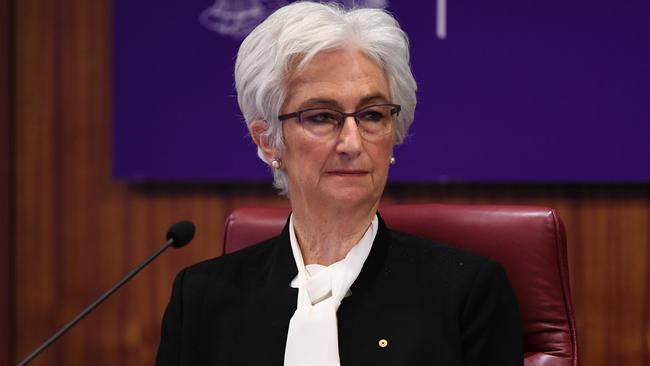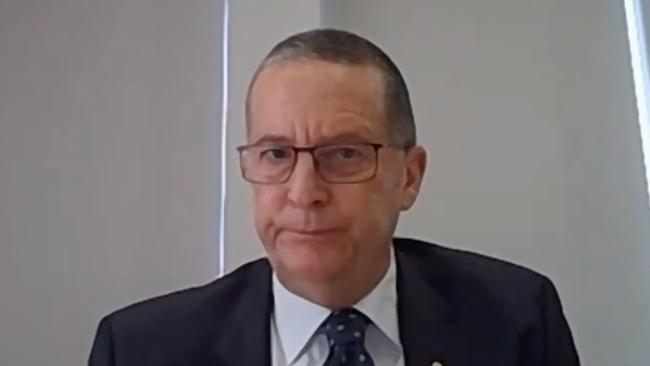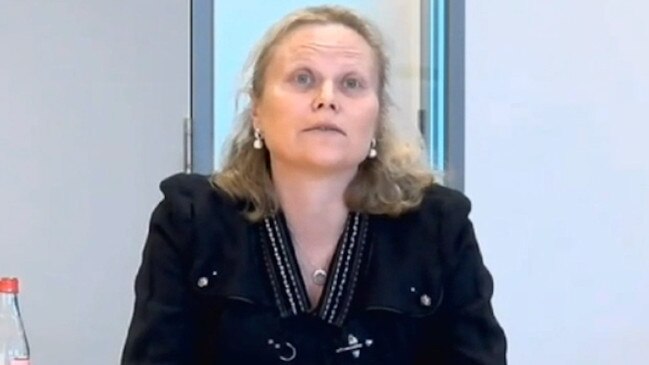Hotel quarantine inquiry report doesn’t find one single person responsible for outbreak
Although she found no single person responsible for using private security in hotels, Justice Coate didn’t exactly clear a number of key players.
Coronavirus
Don't miss out on the headlines from Coronavirus. Followed categories will be added to My News.
Victoria’s hotel quarantine program was so hastily put together nobody sufficiently considered the impact on public health and the spread of coronavirus, a judicial inquiry has found.
Among a multitude of failings that ultimately led to the deaths of 801 people, retired judge Jennifer Coate found the bureaucrats charged with security contracts did not appreciate the largely casual workforce they were hiring would become frontline workers exposed to the risks posed by returned travellers.
As a result, the 36-hour rush to set up the program was more centred on “job creation, particularly if it could serve broader policy objectives” than infection control.
“The process by which the security guards were selected was not appropriate or sufficiently rigorous,” Justice Coate found.

“It was made in haste and without any risk assessment, led by staff that did not have the requisite experience and knowledge needed, and without any public health oversight or input.
“The role played by security was ill-defined from the beginning and was, ultimately, a role not suited to the cohort of guards who were engaged without close monitoring and extensive and continued training.”
Amid an ongoing dispute between the Department of Health and Human Services and Department of Jobs, Precincts and Regions as to who was in charge of the overall operation of the program, staff were unaware of the extent to which security contractors would rely on subcontracting, the inquiry found.
“It was a significant deficiency that DJPR was not in a position to know the extent to which Wilson, MSS and Unified actually engaged in subcontracting throughout the duration of the hotel quarantine program, let alone be confident as to who was providing the services and whether they were properly equipped to do so,” the inquiry found.
The final report of the COVID-19 Hotel Quarantine Inquiry ruled a fully salaried, highly structured workforce — such as Victoria Police — would have minimised the program’s risk to public health.
Although she found no single person responsible for instead using private security in hotels, Justice Coate did place Victoria’s top bureaucrat Chris Eccles at the front of the queue, closely followed by former chief commissioner Graham Ashton.

Having examined phone records in the crucial March 27 minutes in which the security guard plan first took flight, Justice Coate was satisfied Mr Ashton had heard about the possibility from Mr Eccles.
The inquiry also found no consideration of using the Australian Defence Force in first-tier roles during the March 27 decision-making process.
While the benefits of using the ADF were never explored, Justice Coate said the resource could have been requested of the commonwealth.
“I am satisfied that, as of March 27, 2020, the decision not to request the assistance of the ADF for a role in the quarantine hotels was made by Commissioner (Emergency Management Commissioner Andrew Crisp) Crisp, on the basis of his assessment that the various agencies represented at the SCC meeting were appropriately resourced and did not require that form of ADF assistance,” Justice Coate found.
But the faults were found to have begun much earlier.
Understaffing within the DHHS left it unprepared to handle a pandemic. As late as April, DHHS had only one infection prevention and control expert within its Microbiological Diagnostic Unit Public Health Laboratory who was too busy to respond to Operation Soteria requests for help.
A lack of public health experts was also blamed for a decision not to appoint chief health officer Brett Sutton as State Controller, Health to guide the pandemic response.

The inquiry report found then DHHS secretary Kym Peake departed from the State Health Emergency Response Plan — which calls for the CHO to be appointed as the State Controller — after advice from deputy secretary Melissa Skilbeck, who viewed the hotel quarantine program primarily as a logistics program rather than one requiring public health knowledge.
Ms Skilbeck was removed from her position as Prof Sutton’s boss days after the judicial inquiry was announced.
Despite a March 27 email chain appearing to contradict Prof Sutton’s evidence he knew nothing about private security being engaged, the inquiry was satisfied he did not “register” this detail.
Blame stretched well beyond state boundaries, with the commonwealth pandemic plan failing to provide guidance on mandatory detention programs, despite highlighting that the use of hotels was “problematic”.
“It would be unfair to judge Victoria’s lack of planning for a mandatory quarantining program given the commonwealth, itself had neither recommended nor developed such a plan,” Justice Coate said.




